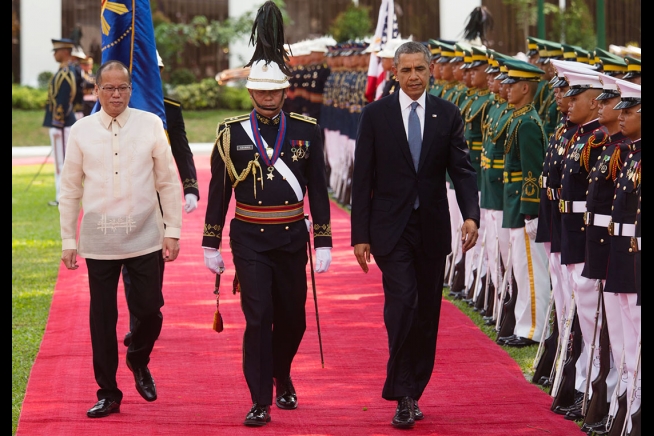What is China’s strategy?
 A simple question about what China has been doing to its neighbours keeps recurring: How is that smart?
A simple question about what China has been doing to its neighbours keeps recurring: How is that smart?
The question came up in dozens of conversations at the Shangri-La dialogue in Singapore and the Asia-Pacific roundtable in Kuala Lumpur. The puzzle of China’s behaviour has shaped the previous columns on Shinzo Abe’s ‘we’re back in Asia security’ speech, the differing security doctrines coming from China and the United States, the Australian Defence Minister’s musings on Asia’s potentially catastrophic situation, the loss of regional confidence, and the impact of all this on the nascent Asian security system that has served China so well.
Consider the responses China has produced or helped validate:
- Japan’s asserting its right to a bigger security role in Asia in ways not heard in 70 years—and this is being warmly welcomed by Australia and Southeast Asia. In a few weeks, Shinzo Abe will come to address the Australian Parliament just as President Obama did in November 2011. That was Obama’s pivot speech, announcing that as president he’d ‘made a deliberate and strategic decision—as a Pacific nation, the United States will play a larger and long-term role in shaping this region and its future, by upholding core principles and in close partnership with allies and friends’. Abe will use the same stage—Australia’s House of Representatives—to offer his own version of that strategic decision.
- The US President went to Japan in April and stated that the Senkaku Islands are covered by the US security treaty with Japan. China has pushed so hard over some barren islands occupied by goats that it has produced a specific promise from Obama that the US is ready to go to war with China to ensure that the goats remain Japanese.
- Traditional fence-sitters such as Malaysia and Vietnam are doing exactly what theory says they must do—balance against China by nestling closer to the US. America now proclaims ‘comprehensive partnerships’ with Hanoi and Kuala Lumpur. Vietnam’s Defence Minister is happily ruminating about the American Navy coming back to use Cam Ranh Bay.
- The rusty US alliance with the Philippines has a fresh coat of paint and Manila is desperate to add muscle to the rebalance.
- For Asia, the US rebalance is central and vital. No explanation is needed for why it matters and why it must be made to work. The only question is about the level of US commitment. Some mordant comfort is taken from the fact that all US military planning now assumes China as the default enemy. Asia is rushing to give new love to the US hub-and-spokes alliance system, with some supporting partnerships added.
How is it in any way smart for China to have done anything to produce such outcomes? As observed by a bearded Canadian strategist who has been cruising Asia for decades: ‘The principal architect of the success of the US rebalance is Beijing.’
When you talk to Chinese officials, officers and strategists, the standard line is that China is the victim. China isn’t the actor, it’s being acted on. China’s only responding to the provocation of others. China’s being pushed around and has to push back. It’s a strange rendering of the way things look to the number two economy in the world and Asia’s pre-eminent power. China’s reaching for its prerogatives as a great power and feeding the fires of its own nationalism while adopting the tone of a put-upon teenager.
One of the best descriptions of this dynamic was given by Rodolfo Severino, the former Philippines diplomat and secretary-general of ASEAN. Now head of the ASEAN Studies Centre at Singapore’s Institute of Southeast Asian Studies, Severino told me:
Although secretly the US is welcome here, publicly one cannot say that because that would be unfashionable. That’s where I think the Chinese are making a mistake. They think that the Philippines and Vietnam are under the thumb of the Americans and it’s not so. By doing what they are doing they are giving the US another reason to be around. So I think it’s a mistake, but one cannot assume that the Chinese have access to the best minds. Although they are very smart but sometimes they don’t think things through.
Graeme Dobell is the ASPI journalist fellow. Image courtesy of the White House.